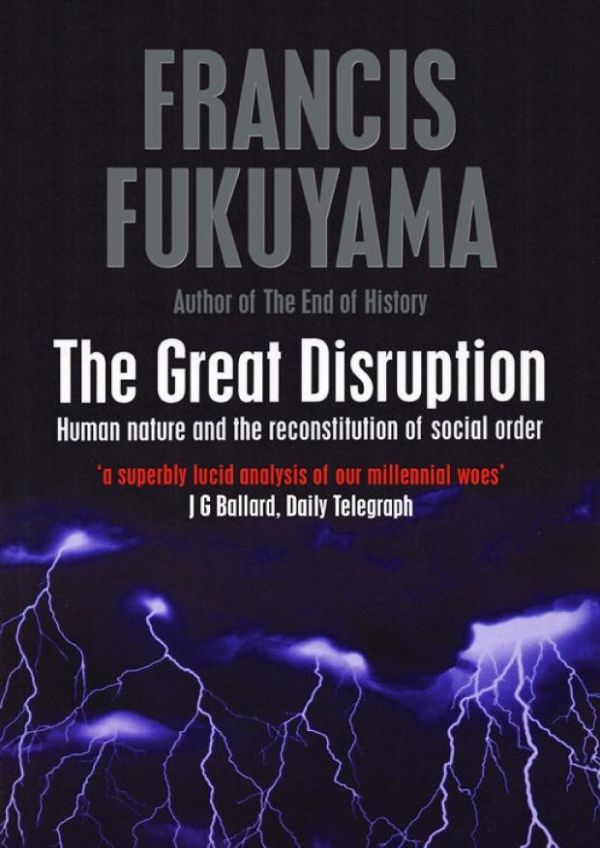
The Great Disruption
کتاب های مرتبط
- اطلاعات
- نقد و بررسی
- دیدگاه کاربران
نقد و بررسی

January 4, 1999
Fukuyama attempts to reconcile the extent of social disruption experienced in many Western countries during the past 30 years with his neo-Hegelian belief that the triumph of Western liberal democracy represents an end of history (articulated in The End of History and the Last Man). He successfully contends that the "Great Disruption" Western nations are experiencing as society moves from an industrial to an information economy is much like the social upheaval that accompanied the industrial revolution. After defining the Great Disruption (the usual litany of increased crime, family breakdown and lack of confidence in public institutions), Fukuyama turns to an exploration of the nature of human beings and morality. In doing so, he makes much of the idea of "social capital," which he defines as "a set of informal values or norms shared among members of a group that permits cooperation among them." Social capital is lacking in periods of disruption and is present when periods of disruption come to an end. Simply put, it's what makes civil society possible. He concludes that Western societies are now reconstructing their social orders--much as they have over the course of history--through revitalized morality, renewed civic pride and strengthened family life. As in previous books, Fukuyama's conclusions are less interesting than the way he arrives at them through a willingness to ask the big questions and an ability to look at contemporary society through the lens of his own vast reading and scholarship.

























دیدگاه کاربران